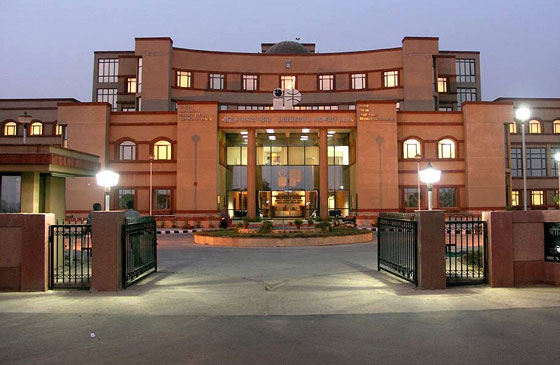By Navamohana Krishnan S
A different version of this report is published by DelhiPost on 15th June 2020.
Pic courtesy: Official website of Indian Patent office http://www.ipindia.nic.in/#
“Patent Offices in India act as ‘Gatekeepers’ between the patent holders and the public by accommodating public interest constructively. However, the threat of corporate monopolies needs to be balanced out” said K. M. Gopakumar, Legal Advisor at Third World Network (TWN) while moderating a webinar discussion on “Accountability of Patent Offices: Implications on access to COVID19 Medical Products and Beyond”, hosted by Chinmaya Vishwavidyapeeth (CVV), in association with TWN Trust on 13th June 2020. Acahal Prabhala, Shuttleworth Foundation, Coordinator of Accessiba Project, P. H. Kurian, Chairman RERA – Kerala, Former Controller – General of Patents, Designs and Trade Marks, GOI and Prathibha SivaSubramanian, Legal Researcher at TWN were the other eminent panellists part of the discussion. The Covid19 pandemic and allied expenses suffered by the taxpayer makes it important to examine the Patent Office’s accountability and performance.
Nithin V Kumar, Assistant Professor of Law at CVV, gave the introduction to the topic by stressing the role of the Patent Office to balance the interest of the public with that of the industry, and how the patent office can facilitate access by providing adequate access to disclosed patent information.
Prof Gopakumar pointed out that the Indian patent law holds a high threshold to guarantee access and avoid weak or bad patents. However, he raised the fundamental questions: does the patent office hold to the spirit of law in its functioning? If it is not up to the mark, then what is at stake?
Mr. Achal Prabhala, replied that a study from Accessiba Project found that 72% of the pharmaceutical patents granted were secondary patents by overcoming the existing rules, regulations and precedents against patent evergreening. The cost to have the patent revoked is too high making it difficult for the pro-health activists, generic manufacturers and others to challenge a granted patent. He also commented that the Indian patent law requires a relook in order to effectively deal with high-end technologies like biologics. “We are granting patents to technologies that we ourselves are not able to comprehend”, he said.
Prathibha Sivasubramanian added to the discussion by signalling the callous nature with which three patents were granted to Remdesvir, a promising COVID19 Drug prescribed for emergency cases of COVID19. For the first patent, she opined that the patent office erred by not objecting to the vague and broad ‘Markush’ claims in its patent application. Markush claims are added to patent applications to obtain wider protection covering a large number of compounds, whose properties may not have been practically tested, but only theoretically inferred. She opined that such granting of such patent claims can lead to unintended consequences.
The second patent claim granted had no in vitro or in vivo test to prove the efficacy as mandated by the Supreme Court in case of Novartis. In the third patent granted, the patent office has overlooked the lack of novelty and failure to establish non-obviousness. i.e. the third patent of Remdesvir fails even in the basic patentability criteria.
Mr Achal Prabhala, explained that the patent owners especially pharmaceutical companies have already profited from the pandemic situation. Gilead Sciences Inc., the patent holder of Remdesvir has seen a sharp increase in its market capitalization in the last 3 months. This means the companies can benefit just by showing positive progress in vaccine development or a drug at hand. Prathibha noted that Gilead had already signed voluntary licenses with Indian companies including Cipla, Ferozsons Laboratories, Hetero labs, etc. for production of the drug. However, she pointed out that the price of the drug is fixed at Rs. 20,000 for a single vial, whereas the manufacturing cost is merely around Rs. 70/vial. This means that a 5-day emergency course of medicine may cost around Rs. 1,00,000 over the hospitalisation expenses. It may be noted that in serious cases, the treatment may exceed even 10 days increasing the medicine as well as the hospitalisation expenses, beyond Rs 10,00,000 per patient. . In this context, Prathibha questioned the significant public investment that has happened for the drug. It creates a double burden on taxpayers with initial public investment and later a steep out of pocket expense due to the high drug price.
P. H. Kurian, former Controller General of Patents, Trade Marks and Designs, expressed his concerns over the apparent errors on the part of the Patent Office while granting patents. He opined that the law was not properly amended and the personnel found it difficult to comprehend. He pointed out that every stakeholder shall push for the drafting of clearer guidelines to make the patent examination process more transparent. He also stressed on the importance of giving specialized training to patent examiners enabling them to take reasonable, rational and legally sound decisions while examining applications.
However, Prof. Gopakumar pointed out that the qualifications required for these patent examiners are absent in the Act or Rules. This needs to be addressed sooner for the significance it may have in the current scenario. He also pointed out that the reports submitted by these qualified examiners to the Controller – General is considered confidential by law and need not be presented before the public unless specifically asked by the courts. This further puts the accountability of the office into question.
Sreenath Namboodiri, of CVV, in his concluding remarks, summarized this discussion. He asserted that the lack of integrity, vulnerability to political and corporate influence over the patent office poses several concerns over the granting of patents. All the panellists concur in their opinion that the patent offices needs take into consideration of the present precarious status of licensed monopoly market and the global public good nature of the Covid19 treatment before granting any further patents to Covid19 Medical Products.

